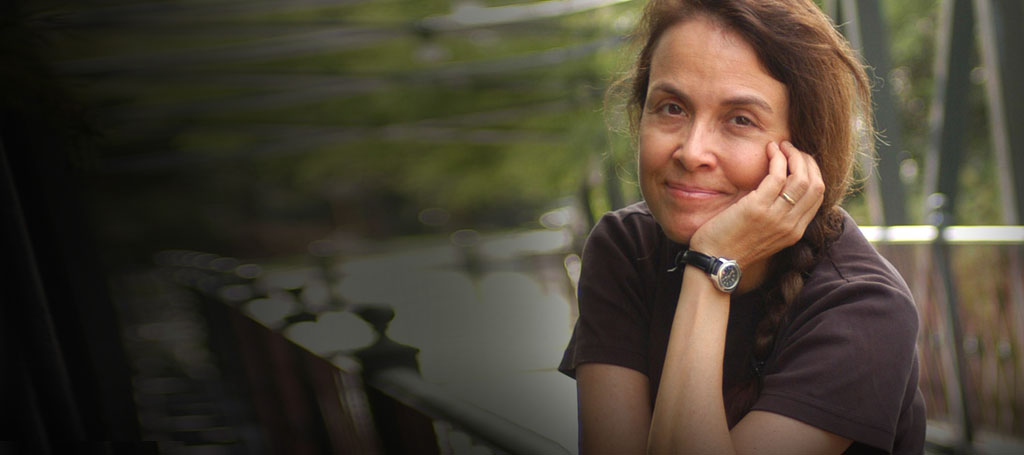poets know kindness

And so we reach the end of National Poetry Month with a favorite poem from a favorite poet I was honored to host at Life is a Verb Camp in 2014. A compilation of all the poets and poems featured will soon be available, a celebration of 30 poets of color.
To end our month, the inimitable Naomi Shihab Nye on kindness:
Naomi Shihab Nye was born in St. Louis, Missouri in 1952. Her father was a Palestinian refugee and her mother an American of German and Swiss descent, and Nye spent her adolescence in both Jerusalem and San Antonio, Texas. Her experience of both cultural difference and different cultures has influenced much of her work. Known for poetry that lends a fresh perspective to ordinary events, people, and objects, Nye has said that, for her, “the primary source of poetry has always been local life, random characters met on the streets, our own ancestry sifting down to us through small essential daily tasks.” In her work, according to Jane Tanner in the Dictionary of Literary Biography, “Nye observes the business of living and the continuity among all the world’s inhabitants…She is international in scope and internal in focus.” Nye is also considered one of the leading female poets of the American Southwest. A contributor to Contemporary Poets wrote that she “brings attention to the female as a humorous, wry creature with brisk, hard intelligence and a sense of personal freedom unheard of” in the history of pioneer women.
In her first full-length collection, Different Ways to Pray (1980), Nye explores the differences between, and shared experiences of, cultures from California to Texas, from South America to Mexico. In “Grandfather’s Heaven,” a child declares: “Grandma liked me even though my daddy was a Moslem.” As Tanner observed, “with her acceptance of different ‘ways to pray’ is also Nye’s growing awareness that living in the world can sometimes be difficult.”
Nye’s next books include On the Edge of the Sky (1981), a slim volume printed on handmade paper, and Hugging the Jukebox (1982), a full-length collection that also won the Voertman Poetry Prize. In Hugging the Jukebox, Nye continues to focus on the ordinary, on connections between diverse peoples, and on the perspectives of those in other lands. She writes: “We move forward, / confident we were born into a large family, / our brothers cover the earth.” Nye creates poetry from everyday scenes throughout Hugging the Jukebox in poems like “The Trashpickers of San Antonio” and the title poem, where a boy is enthusiastic about the jukebox he adopts and sings its songs in a way that “strings a hundred passionate sentences in a single line.”
Fuel (1998) is perhaps Nye’s most acclaimed volume. The poems range over a variety of subjects, settings, and scenes. Reviewing the book for Ploughshares, Victoria Clausi regarded it as, above all, an attempt at connection: “Nye’s best poems often act as conduits between opposing or distant forces. Yet these are not didactic poems that lead to forced epiphanic moments. Rather, the carefully crafted connections offer bridges on which readers might find their own stable footing, enabling them to peek over the railings at the lush scenery.” Like her mentor, William Stafford, Nye again and again manifests her “belief in the value of the overlooked, the half-forgotten,” wrote Clausi, as well as investigating more “worldly concerns” like the Israeli-Palestinian conflict.
After the World Trade Center attacks in 2001, Nye became an active voice for Arab-Americans, speaking out against both terrorism and prejudice. The lack of understanding between Americans and Arabs led her to collect poems she had written which dealt with the Middle East and her experiences as an Arab-American into one volume. 19 Varieties of Gazelle: Poems of the Middle East (2002) received praise for the timeliness of its message.
In addition to her poetry collections, Nye has produced fiction for children, poetry and song recordings, and poetry translations. She has also produced a book of essays, Never in a Hurry (1996), and edited several anthologies, including the award-winning This Same Sky (1992), which represents 129 poets from sixty-eight countries. In her introduction to the anthology, Nye writes, “Whenever someone suggests ‘how much is lost in translation!’ I want to say, ‘Perhaps—but how much is gained!’“
Nye told Contemporary Authors: “I have always loved the gaps, the spaces between things, as much as the things. I love staring, pondering, mulling, puttering. I love the times when someone or something is late—there’s that rich possibility of noticing more, in the meantime…Poetry calls us to pause. There is so much we overlook, while the abundance around us continues to shimmer, on its own.”
Kindness
Before you know what kindness really is you must lose things, feel the future dissolve in a moment like salt in a weakened broth. What you held in your hand, what you counted and carefully saved, all this must go so you know how desolate the landscape can be between the regions of kindness. How you ride and ride thinking the bus will never stop, the passengers eating maize and chicken will stare out the window forever. Before you learn the tender gravity of kindness you must travel where the Indian in a white poncho lies dead by the side of the road. You must see how this could be you, how he too was someone who journeyed through the night with plans and the simple breath that kept him alive. Before you know kindness as the deepest thing inside, you must know sorrow as the other deepest thing. You must wake up with sorrow. You must speak to it till your voice catches the thread of all sorrows and you see the size of the cloth. Then it is only kindness that makes sense anymore, only kindness that ties your shoes and sends you out into the day to gaze at bread, only kindness that raises its head from the crowd of the world to say It is I you have been looking for, and then goes with you everywhere like a shadow or a friend.









